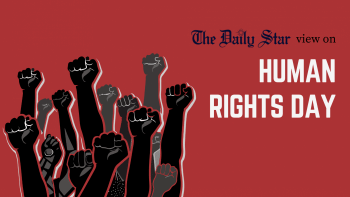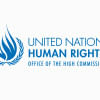The relevance of Universal Declaration of Human Rights

If the community of states had a common religion, then that could have been the Universal Declaration of Human Rights (UDHR), in the sense that each of the signatories have expressed their allegiance to this declaration. The UDHR is a collection of some inherent rights for each human being, which are fundamental to their survival with dignity. Perhaps we also know that the dignity of a human being survives their death.
The UDHR, as evident from its preamble and contents, serves as a mutual pledge, belief and understanding among members of the international community, and it provides a common platform for all nations to peacefully coexist, to cooperate as well as to grow and survive as mankind.
The UDHR, the basic legal instrument that records human rights, was adopted by the General Assembly of the United Nations on December 10, 1948 and ratified by all 193 members of the UN.
All democratic states have, by now, incorporated these basic human rights, described either as the fundamental rights or as the bill of rights, in their respective constitutions, so that any violation can be redressed by their respective national courts.
The European countries, on their part, founded the Council of Europe (CoE) in 1949, with 46 member states. The UK and other members of the CoE signed the European Convention on Human Rights in 1950, in addition to their ratification of the UDHR. Moreover, to ensure implementation of these rights, the CoE established the European Court of Human Rights (ECHR) in 1959. Since November 1, 1998, this has been a full-time court situated in France, and the individuals of any member state can apply directly to this court.
The UK also passed the Human Rights Act, 1998 in the same year when the ECHR started functioning. This is a British domestic law and came into force on October 2, 2000. Thenceforth, this forum is available to the citizens of the UK to complain about violations and to redress the grievances under the act.
Long before the UDHR, the constitution of the United States was approved on September 17, 1787, and it became effective on June 21, 1788. With several amendments made thereafter, between 1791 and 1992, the US has incorporated these basic human rights into its constitution and has been the first to guarantee these rights, the human dignity and fair treatment to all her people. Life, liberty and pursuit of happiness were recognised in the US Declaration of Independence on July 4, 1776 as the three unalienable rights given to all humans by their creator.
These basic human rights have also been incorporated in the 1972 constitution of the newly-independent People's Republic of Bangladesh under Chapter III, described as "Fundamental Rights" in articles 27 to 44. Most importantly, Article 44 makes the right to "enforce the fundamental right" as a fundamental right in itself.
The democratic countries of the West have, by now, conspicuously shown that these countries hold a uniform value about the human rights philosophy. They consider democracy as one side of the coin, while human rights as another. These countries have also demonstrated a strong will to zealously guard, promote and support these rights, although there are serious allegations of human rights violation, or at least indulging in human rights violation, against some of them, particularly on the issue of Israel's unlawful occupation of Palestine's land.
The human rights situation is, nowadays, a basic norm used in rating the countries. Besides, in this age of information technology, human rights issues have become a matter of interest to the international community. The observations and reports made on a country may create "good" or "bad" perception about it. So, the importance of human rights issues need not be overemphasised.
Notably, Bangladesh has shown an unprecedented respect to human rights and human dignity by rehabilitating, with her own limited resources and with the help of the UN and other friendly countries including the US, more than 1,000,000 Rohingya refugees by now.
The issues of human rights are not at all an academic issue, nor are these any political rhetoric in Bangladesh. Article 11 of the Bangladesh Constitution, as one of the fundamental principles of state policy, affirms that "The Republic shall be a democracy in which fundamental human rights and freedoms and respect for the dignity and worth of the human person shall be guaranteed."
In addition to guaranteeing this fundamental right in Chapter III of the constitution, the republic has walked further to protect, preserve and defend these rights. Hence, Article 26 (1) declares that all existing law (pre-constitutional law) inconsistent with the fundamental rights shall become void on the commencement of the constitution. While Article 26 (2) puts an embargo on the state in making any law that may be inconsistent with such rights and also mandates that the law so made shall be void to the extent of such inconsistency.
Moreover, the Supreme Court has been vested with jurisdiction, under Article 102, to entertain writ petitions and to strike down or to declare void any acts to the executives or of any other statutory authority or tribunal and even an act of parliament, if done or made in violation of Chapter III, guaranteeing these fundamental rights. Similarly, the court can prohibit as well as compel the authorities, as the case may be, to implement these rights if any application is made to it.
Apparently, the values and the scheme, in regards to democracy being one side of the coin and human rights being another, as envisioned in Article 11 of the constitution, are in harmony with those of the Western democracies and their allies.
Justice Md Rezaul Hasan is a judge at the High Court Division of the Supreme Court of Bangladesh.

 For all latest news, follow The Daily Star's Google News channel.
For all latest news, follow The Daily Star's Google News channel. 












Comments